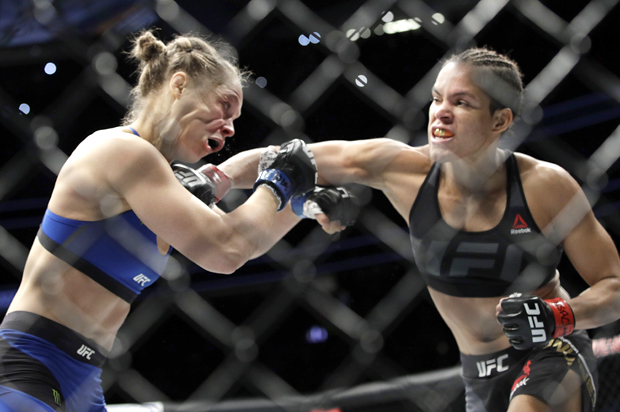Ronda Rousey’s long-anticipated comeback to UFC fighting came to a rapid halt in a 48-second technical knockout at the hands of defending UFC champion Amanda Nunes. The Dec. 30 fight marked another major setback in Rousey’s tumultuous career. After a meteoric rise to UFC and global stardom, Rousey lost her undefeated record and UFC Women’s Bantamweight title at the hands of Holly Holm in Nov. 2015. Rousey subsequently took 18 months off from UFC competition to recover and train before returning to the octagon last month.
The mental strength to stay at the top of one’s game and rebound from defeat is an essential skill in any successful athlete’s repertoire. Rousey’s fall from UFC Bantamweight favourite and Hollywood darling to consecutive defeats mirrors the tumultuous journey many athletes face over their careers. These internationally lauded athletes can get overconfident in their matches or neglect to make adjustments and tweak their styles to keep opponents and newcomers off guard. Rousey’s questionable coaching has been widely criticized for both its legitimacy and strike heavy strategy; in particular, it makes her attacks more predictable and easier to prepare for. Additionally, by taking advantage of technology for increased scouting, preparation, and film review of incredible sophistication, other athletes seem to have cracked the code of what made Rousey unbeatable.
For all athletes, the art of the comeback is incredibly tough to master. Watching Rousey fail in her initial attempt was relatable for athletes across the world. Whether being cut by a team, trying to overcome an injury, or facing mental roadblocks, athletes of all ages must constantly fight to remain competitive in their respective sports. Even for legends Michael Jordan and Muhammed Ali, comebacks can end in unfortunate failure.
Keeping confident with a winning record is much easier. In Rousey’s case, her wins became self-perpetuating–she believed she was incapable of losing. This confidence was only encouraged by the accolades and honours she received both inside and outside of the sports world. However, the true mental fortitude of an athlete is tested when they start losing. Serena Williams in particular has come to dominate women’s tennis because she remains poised even when she falls behind. Her 33 Grand Slam match victories [in which she was trailing by a set] show the importance of mental preparation for world-class athletes.
Whether or not there is a specific psychological formula to a successful comeback is up for debate. Intensity and consistency are two assets athletes must have, but maintaining these skills across matches is no guarantee–especially when faced with athletes perceived to be stronger or weaker in skillset. Some psychologists even believe that falling behind or losing a match can reignite the intensity and competitive spirit essential for a winning record. With this theory, losing can actually be a good thing if it jerks an athlete out of complacency.
With the mentality of a comeback in mind, Rousey is at a crossroads in her career. Perhaps other fighters have unlocked the secret to her style and have temporarily found ways to beat her until she can adapt and dominate them once more. Or, perhaps the “myth” of Rousey’s inability to be defeated has been crushed, giving other fighters confidence when they step into the octagon. Either way, Rousey can either lean into her losses and derive intensity from them or she can let her defeats define her. Many athletes have faced a similar choice, but for Rousey, the stakes are higher because of her celebrity status. Her response will either mark the end of her career or will solidify her as one of the greatest female athletes of all time.









